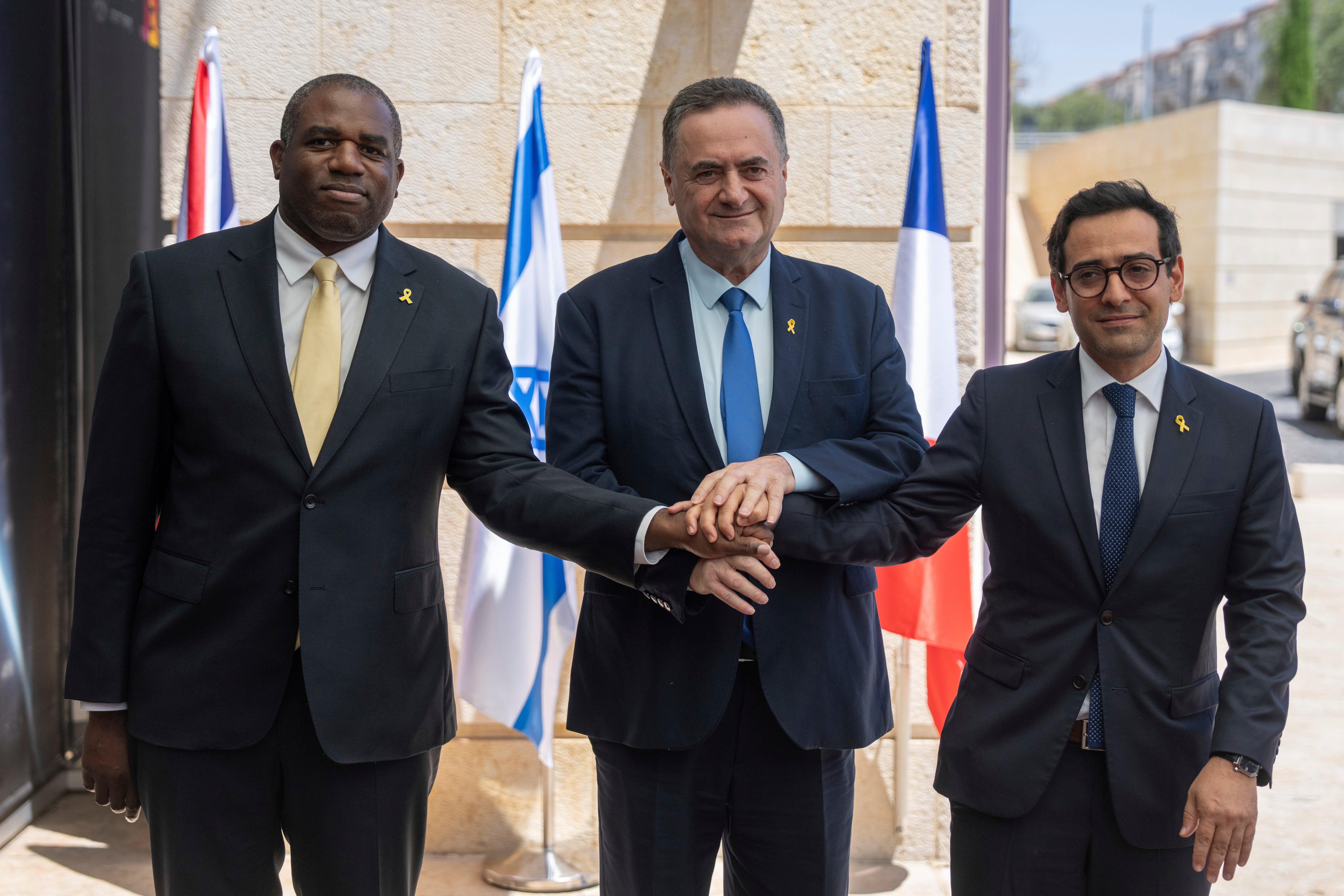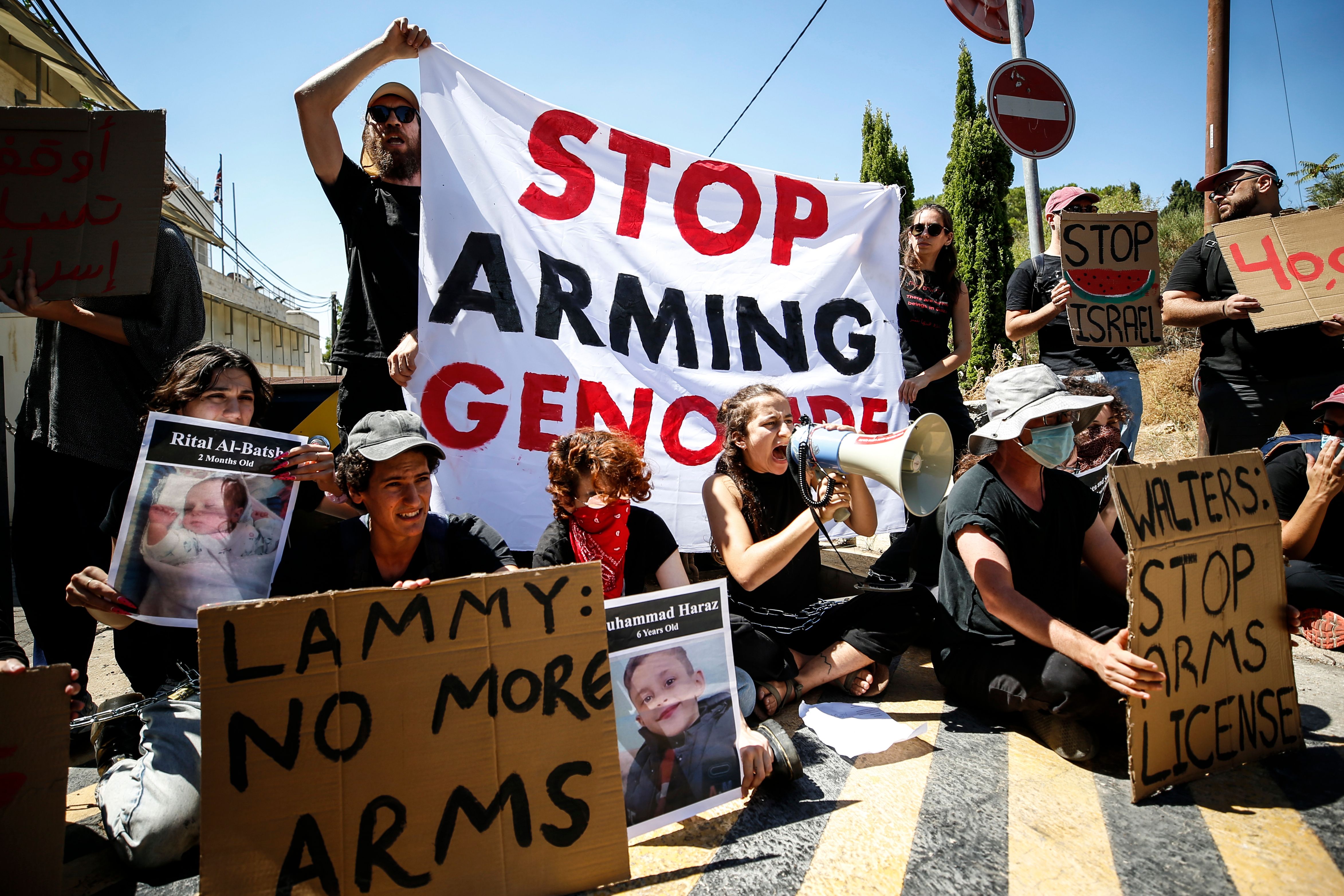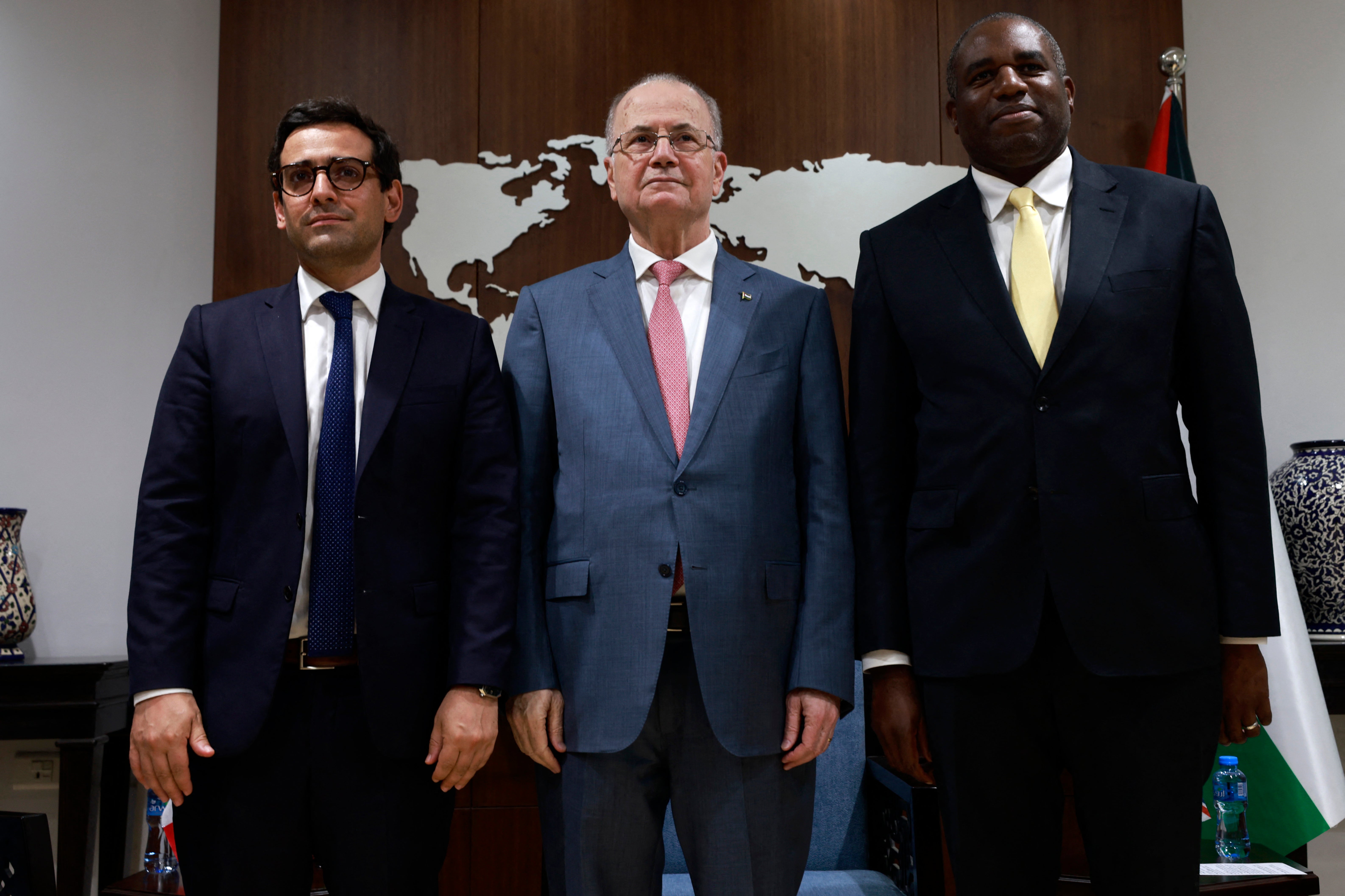David Lammy says ‘the time for a deal is now’ as foreign secretary pushes for ceasefire in Gaza
Visit comes hours after Israeli settlers attack a village in the occupied West Bank

Your support helps us to tell the story
From reproductive rights to climate change to Big Tech, The Independent is on the ground when the story is developing. Whether it's investigating the financials of Elon Musk's pro-Trump PAC or producing our latest documentary, 'The A Word', which shines a light on the American women fighting for reproductive rights, we know how important it is to parse out the facts from the messaging.
At such a critical moment in US history, we need reporters on the ground. Your donation allows us to keep sending journalists to speak to both sides of the story.
The Independent is trusted by Americans across the entire political spectrum. And unlike many other quality news outlets, we choose not to lock Americans out of our reporting and analysis with paywalls. We believe quality journalism should be available to everyone, paid for by those who can afford it.
Your support makes all the difference.Foreign secretary David Lammy has said during a visit to Israel that the “time is now” for a Gaza ceasefire – as he pushes for a truce that would also ease hostilities across the Middle East that have left the region on the brink of a wider war.
His visit, alongside French counterpart Stephane Sejourne, piles on the pressure for a deal as talks continue in Doha to stop the fighting between Israel and Hamas and secure the release of Israeli hostages still held inside Gaza. Those talks, convened by Qatar, Egypt and the US, are aimed at breaking weeks of diplomatic deadlock after the number of dead in Gaza this week passed 40,000.
It also came hours after Israeli settlers launched an attack on a village near Nablus, in the occupied West Bank, killing at least one Palestinian whose funeral drew huge crowds.

Mr Lammy’s trip included the West Bank where, in Ramallah, he met Palestinian prime minister Mohamed Mustafa.
In Jerusalem, he called for hostages to be returned, aid to be allowed into Gaza “in the quantities that are necessary”, and for the fighting to stop.
“This is a war and a crisis that has taken so many lives across the region, and of course began with the most horrific events on 7 October,” Mr Lammy said.
“But as we head now into 315 days of war, the time for a deal – for those hostages to be returned, for aid to get in in the quantities that are necessary in Gaza and for the fighting to stop – is now. And of course that is the message that we have jointly underlined to ministers today, both in Israel and of course in the occupied territories.”

More than 100 hostages were released during a week-long ceasefire in November, and around 110 are believed to still be inside Gaza, though Israeli authorities believe around a third of them are dead.
Mr Lammy met Israel’s foreign minister, Israel Katz, and minister of strategic affairs Ron Dermer, saying beforehand that there is “no time for delays or excuses from all parties on a ceasefire deal”.
He added that the first day of talks in Qatar had gone well and that Israeli officials “hope that we are on the cusp of a deal”. Before the talks began, Hamas, which didn’t participate directly in the discussions but would be consulted by mediators Qatar and Egypt, accused Israel of adding new demands to a previous proposal that had US and international support and to which Hamas had agreed in principle. Israel accuses Hamas of adding its own new demands.

Tensions have spiked in the region following the assassination of Hamas leader Ismail Haniyeh on Iranian soil late last month, which Tehran has blamed on Israel and has vowed revenge. Possible retaliation from the Iranian-backed Hezbollah across the Israel-Lebanon border – with Israel having killed a senior Hezbollah commander in Beirut a few hours before Haniyeh was assassinated – is also contributing to growing concerns over a wider war.
Mr Katz told his French and British counterparts during Friday’s meeting that Israel expects support in attacking Iran if it strikes Israel. He said: “If Iran attacks, we expect the coalition to join Israel not only in defence but also in attacking significant targets in Iran”.
Three senior Iranian officials told Reuters earlier this week that only a ceasefire deal in Gaza would prevent the country from launching direct retaliation against Israel for the assassination of Haniyeh. Israel has neither confirmed nor denied its involvement.
Join our commenting forum
Join thought-provoking conversations, follow other Independent readers and see their replies
Comments